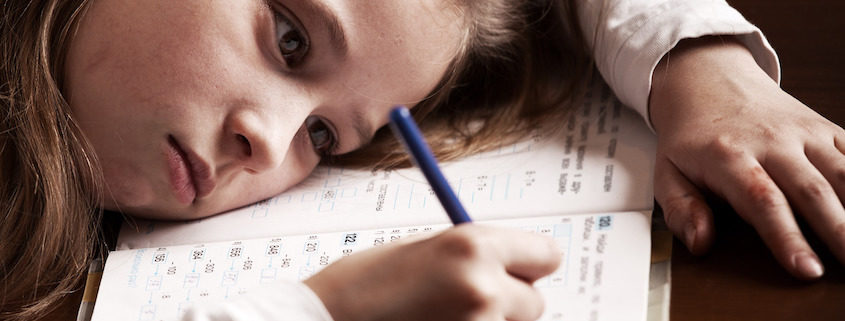Is your child or teen acting out?
There are 4 goals of misbehavior in children and teens
You have seen them… the child screaming for attention in the store or the teen who dresses in a way impossible to ignore, the one who plays helpless and asks for help before even trying to problem-solve on his own, the child who talks back and “hates” his parents, and the one who insists on his or her way and attempts to rule the roost.
What do they all have in common?
They are working to get love and connection from their parents. No, it’s not a typo; it might not make sense logically, but emotionally, it does.
All children, whether they are toddlers or high schoolers, have 2 primary needs: to be loved unconditionally and to belong. If they feel discouraged and perceive they cannot belong in a useful way, they start acting up. They actually want 1 of 4 things: they either want to get attention, power, revenge, or display inadequacy.
Let’s look at these “goals of misbehavior”, and what might be an effective strategy to coach your child toward more positive behavior.
GOAL # 1: Attention
All kids need attention and a large part of parenting is to give our kids attention. But when your child mistakenly believes that the only way to belong is to have your attention –and will misbehave to get it– it becomes problematic.
You know when your child is misbehaving in an effort to get your attention if your reaction is to get annoyed or bothered. Your natural response will be to coax, remind, nag or criticize. Your child will usually respond by stopping the behavior temporarily and then starting it up again later for more attention.
- Examples:
- Actively seeking attention:You are visiting with a friend when your 9 yr old daughter asks you to watch her do a cartwheel on the lawn. You oblige happily, remark on her progress and go back to your discussion. But a minute later, you’re showered with another wave of “watch me Daddy, watch me!”, quickly followed by “Watch me again!” and again, and again… Her bid for attention might escalate until she falls and receives your complete attention. With a teenager, you might find that your son does something that annoys you. After you step in to correct the behavior, he may stop but before long, he moves on to another annoying behavior.
- Passively seeking attention: Instead, your son might do nothing and simply expect to be waited on.
Solution: Encourage your child to join in and be part of things in a positive way. Ignore your child’s obvious bid for attention and instead focus and draw attention to something else entirely. At a different time, offer positive attention when he or she isn’t trying to get it. Catch him or her being good.
GOAL # 2: Power
Part of growing more independent is to feel more in control. In and of itself, power is a positive goal. It only becomes a problem if, as with attention, your child feels that the only way to connect is by having the power. In the case of teens, it’s a very common goal of course since they are often very focused on gaining autonomy.
Your clue to the fact that your child is trying to show power is that you will tend to respond by feeling angry or threatened. You might try to make him obey or you might give in. If you choose to fight and make him do what you want, he will fight back. If you choose to give in, he’ll stop acting out since he won and got what he wanted.
- Examples:
- Actively seeking Power:Your child may deliberately break your rules like going biking without a helmet, choosing friends he knows you are uncomfortable with, or refusing to come home when you ask.
- Passively seeking Power: Sometimes, your child will comply with your request but do it slowly or sloppily hence communicating that although you can make him do what you want him to do, he can control how he does it.
Solution: Look for ways to give your child more choices. Encourage your child to gain independence and be responsible. Don’t fight or give in, let consequences simply happen.
GOAL # 3: Revenge
If your child loses a power struggle and feels hurt, he may decide to get revenge.
As a parent, you might feel shocked, hurt and angry. You might react by trying to get even and in return, your child will try to get more revenge, continuing the cycle with no end in sight.
- Examples:
- Actively seeking Revenge:Your child might say or do something hurtful. Teens might take risks with the whole goal of shocking or worrying you.
- Passively seeking Revenge: Your child may choose to glare at you angrily.
Solution: Refuse to take things personally. Refuse to get even. Don’t enter in a cycle of escalating revenge. Focus on building trust and respect when everyone is calm.
GOAL # 4: Display of Inadequacy
Sometimes a child will try to connect with his parents by acting helpless in a particular area. He or she perceives that the only way they will connect with you is by convincing you they are helpless.
When your child’s goals is truly to display inadequacy (as opposed to a plight to get your attention which will elicit an annoyed emotional response), he just wants to be excused from the task. He wants you to stop expecting anything from him. You are likely to feel like giving up too. Although you may not voice it out loud, you might in fact think that your child is helpless in that area. You might give up and do nothing. If you do give up and agree to expect nothing from your child, his goal has been met but at a very high price.
- Examples:
- Your child may try to convince you he can’t figure out homework, do a good job at their chores, or make friends.
Solution: Because a child who gives up is very discouraged, focus on progress and encourage any effort. Don’t pity them and don’t give up.
When your teen or child is acting out, take a minute to determine what your child’s misbehavior payoff is and change the way you react. You can help your child develop more positive beliefs and strategies about getting your love and connection.
To learn more about identifying and responding to your kids’ behavior, pick up the book STEP Parenting: Systematic Training for Effective Parenting by Dinkmeyer or their Teen version of the book: Parenting Teenagers: Systematic Training for Effective Parenting of Teens. It is an extremely valuable resource and can make a huge difference. Or call me at (919) 745-7569!
Liked This Article? Subscribe and Get my Thought of The Week Newsletter directly in your inbox! (You’ll also get a free copy of my “Emotional Mastery” training and my Free Special Report “5 Steps to Stop Procrastinating“)


